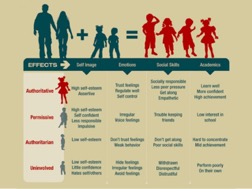 Parenting is not easy and it is not necessarily a skill we are born with. We do possess some instinctual skills regarding child rearing, this is especially true for women. However, much more of our parenting skills are learned from the ways our parents parented us and from society, such as in schools and other socializing organizations.
Parenting is not easy and it is not necessarily a skill we are born with. We do possess some instinctual skills regarding child rearing, this is especially true for women. However, much more of our parenting skills are learned from the ways our parents parented us and from society, such as in schools and other socializing organizations.
Not all we have learned from our parents is practical for parenting. And not all parenting practices are healthy for the child, the family, and the community which the child will grow into and become a part of. However, no parent is perfect in the raising of their children. It’s impossible to be a perfect parent. Misjudgments and mistakes are made about some things that go into raising a child.
There are three parenting styles; authoritarian, permissive, and authoritative. Each parent utilizes one of these styles in raising their children. The good thing about parenting styles we can change them. Let’s take a look at each of these styles.
Authoritarian parents maintain a high degree of control over their children and have a high expectation of them. They require their children to conform and comply with every expectation, often regardless of how the parents themselves behave. Authoritarian parents can also often be contradicting between what they expect of their children and how they act themselves. This does nothing but confuses children and creates resentments toward the parent. The child’s behavior will reflect this confusion and those resentments, often through rebellion against their controlling parents.
Authoritarian parents have set and established rules they expect their children to follow and obey and don’t think they have to explain the reasons for those rules or for what they say or expect. Additionally, authoritarian parents give very little or no freedom to their children. In authoritarian families the children learn early on that they must please their parents to gain approval and/or reward. Moreover, the children behave out of fear for their parents and have a difficult time learning to think for themselves. In extreme authoritarian parenting violations of the rules can result in severe, sometimes abusive, consequences for the child.
At the other end of the spectrum is permissive parenting. Permissive parents generally allow their children to do whatever they want, giving up control to their children. What rules the parents do establish are often not consistently enforced. Moreover, boundaries are unclear and these parents tend to accept the child’s behavior, good or bad, and give little input about the advantage or disadvantage of that behavior.
Authoritative parents, on the other hand, help their children be responsible for their behaviors and themselves in loving and warm manner. These parents provide clear and reasonable expectations for their children. For example, a toddler who throws their toys down the stairs in a tantrum may have those toys taken away, along with an explanation about tantrums being unacceptable behavior. The child is further told that they can earn their toys back by acceptable behavior over the following few days.
Neglectful parenting is yet another parenting style. Although neglectful parents provide for the basic needs of the child they are not involved in the child’s life. These parents just don’t care about the child, short of clothing and feeding that child.


